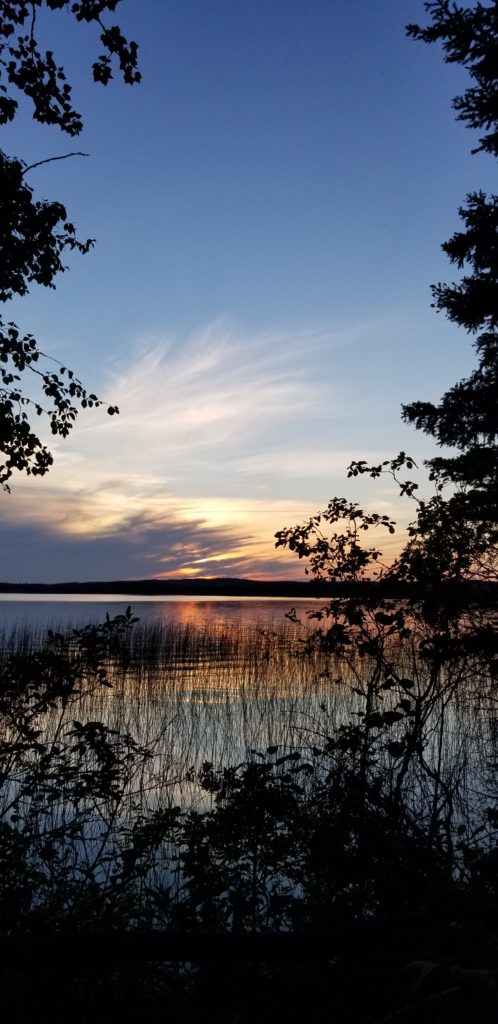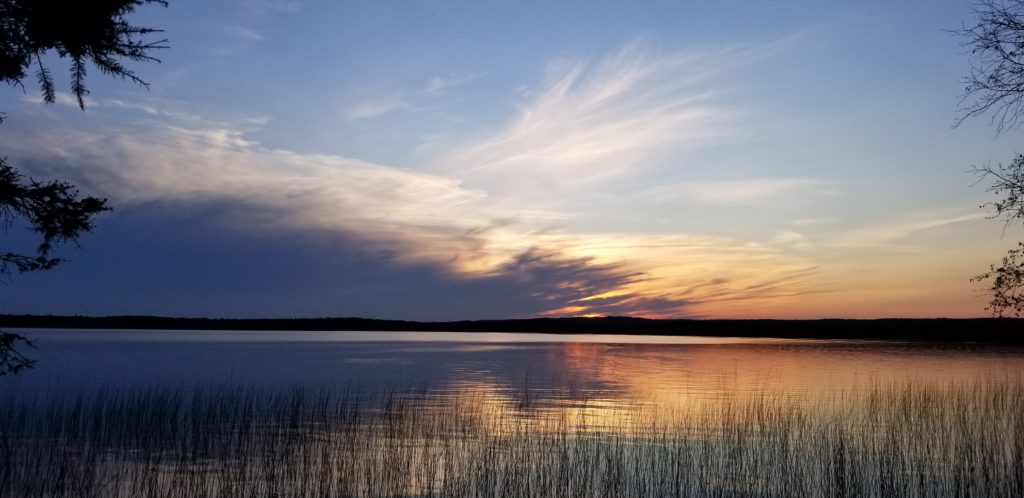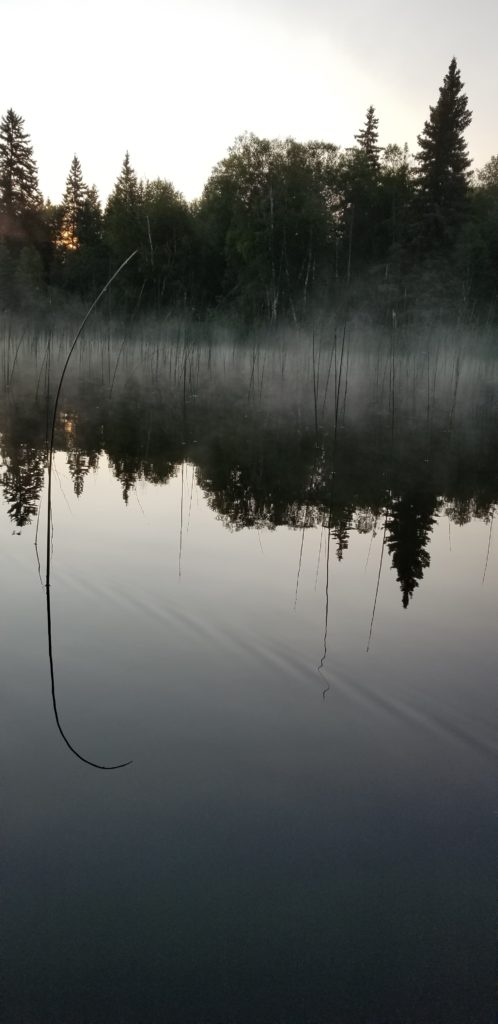Trees: Aim Between
When skiing in the mountains on a slope with trees on it
I’ve taught more than a few people how to ski. Invariably we arrive on top of a slope where there are trees at least dotting the slope. The student looks with apprehension. I say respect the trees, but do not fear them. Do not look at them or you will head straight into one of them. Look at the snowy hillside between the trees where you want to ski.
Three Lessons full of Trees

OT: The self deluded Teacher Fool
We heard the Teacher in today’s first Lesson say:
Vanity of vanities! … All is vanity.
Our labour produces great results but our results are left to others, who may be wise or foolish.
Ecclesiastes
It is tempting to think he may be right: that God has created, humans have worked, and nothing is worth anything. But the Teacher’s wisdom is a big forest of trees of hopelessness.
Here God’s truth disappears like the misty fog evaporating with the rising sun. Then any lie can be presented as if true. Despair takes on all sorts of guises. Instead of being thankful, one demands more and more of things that cannot fill the empty void that should be one’s heart.
This kind of life is at war with itself and the ensuing conflict and chaos allow one to hide from accountability, hope, love and even Jesus.
NT: The Different Life of Lists
In contrast the writer of Colossians reminds us that Christ raises us differently, into life free from what destroys us.
The writer then presents us with lists of things to leave behind: fornication, impurity, passion, evil desire, and greed (which is idolatry), anger, wrath, malice, slander, and abusive language. Do not lie to one another.
These are more trees to avoid.
The one exception would be passion, though as all God’s gifts, passion can be abused and used as a destructive force in one’s own life and in others’.
Since the early Christians, including the Colossians, expected Jesus to return in their own lifetimes, their sense of urgency valued the freedom of celibacy and devalued the ties of passion. But God created passion as an important and healthy motivation for much of life including marriage, parenting, care of the earth and the building of a just society.
Gospel: Using Jesus for Greed
Today’s Gospel is a great parable within a parable: A man comes to use Jesus to get an inheritance from his brother, against the tradition of the time.
Through the ages we human beings have more than perfected the use of Jesus or Religion to pound others down and try to feed our own greed.
Greed is related to gluttony.
“A glutton is (a person) who raids the icebox for a cure for spiritual malnutrition.”
(Wishful Thinking, F Buechner)
Gluttony and Greed kill us as we try to eat or possess more than we can stand.
To teach us this, Jesus tells a parable of the pathetic wealthy man who after a great harvest, builds new barns to hold it and anticipates the remainder of his life as an easy retirement. But his possessions are the end of him. It’s all for naught!
Lots of Trees to Avoid
That gives us lots of trees to avoid. There is precious little of what we should aim for. It’s like skiing down a mountain and all we see are trees.

Where is Grace
So where is the Good News?
NT: Look above
The writer of Colossians points us to set our minds on things that are above. So looking up ever since we lived in caves we see the stars, the moon and the sun. Aided by the passionate drive of George Ellery Hale, and so many others, to see and learn more by building bigger and better telescopes in the last 100 years, what we see is astoundingly mind boggling. (E.g. see the documentary Journey to Palomar)
Before, we knew the earth, one of nine planets, revolved around the sun. Now, we’ve seen numerous planetoids, one being Pluto, so there are only eight planets. We know our sun has a magnetic field, with flares that cause the northern lights and disrupt satellite communications. We know about galaxies, that most of the matter in the universe is invisible, that the universe is expanding and the universe is so, so much larger than we ever imagined! We have not found alien life, but in the immense expanse of the universe it is probable, if not guaranteed.
We have seen God’s handiwork in the awesome expanse and workings of the universe and begun to understand their impact on our daily lives.
Are these ‘the things above’ that we are to aim for? Maybe not, one would quickly say. But then perhaps we ought not be too quick to decide.
Rest of Scripture
With so many trees in our lessons, we look to the rest of Scripture and the Christian Church’s history, to guide us to the joy of life ‘skiing’, as it were, without hitting the trees.
Relationships Trinity
We believe that God is Trinitarian. God is three in one. In part that means that the basic reality of God is that God is in relationship. We are created in God’s image, so we know we are created to be in relationship.
God Loves, We love
Luther taught that the core of the Gospel could be summed up in one short passage “ God so loved the world that God sent his only Son so that everyone believes in Jesus may have eternal life.” God loves – us … and the whole universe God created! In relationships we are to love one another and all of creation.
The Teacher’s wisdom is folly because he ignores other people as God’s good creatures. Work is not to be hated, rather it is to be joyful and rewarding precisely because it provides for others, just as God has provided for us!
The pathetic farmer in Jesus’ parable is consumed by his possessions because he has no sense that his bounty is a gift from God entrusted to him to be shared with others.

God’s Grace and Work
We know God’s Grace for us. We know that God comes to us, forgives us, makes us righteous before God, by Grace (in other words, as a gift that we do not earn!)
We know that God does this first, then we can get down to living and working as God’s own children in this marvelous creation.
Riches with God
In today’s Gospel Lesson, Jesus points us ‘to build up riches with God’. It is easy to understand that our ‘riches with God’ are what God gives us, namely God’s Grace and all that flows from it.
Our work: Response, because … therefore
We know then our work is NOT to make ourselves good enough for God. Everything we do is to be a response to God’s Grace for us.
Because God makes us Good, perfect before God,
therefore we can fully engage in creation. We can be passionate about life and the goodness of creation, so that we can share the necessities of life and the wonders of the universe with ALL other people, in the present and for all generations to come.
The Teacher in Ecclesiastes had no room for any passion for sharing the beauty of life with others. He had no passion to know that God’s love moved God to speak a word “Let there be Light,” and after 7 days to say, “it is good!”
In the resulting blessed creation of order and beauty, we can be passionately engaged in the wonders of the universe.
We can share this life with another person with the passion of a marriage. We can invest in friendships that carry us, our friends, and people around the world through the trials of life.
Sharing God’s riches brings us to be so passionate about life that we can expend all of our lives striving to see and share our place in God’s awesome universe. For some of us that may mean building bigger and better telescopes. For all of us it means respecting but leaving behind the ‘trees’ of judgment, condemnation and lists, sharing instead God’s Grace with all people. We can choose to make justice a reality for each person.
Sharing God’s riches is possible for everyone.
We could choose not to share God’s riches. But why would we?
Story: We Ain’t Poor by Florence Ferrier
(Gospel Notes 2001, Brian Stoffregen, reworked TL)
In the story We Ain’t Poor! the Sheldons, a large family in the Appalachians, live in severe financial distress after a series of misfortunes. They receive inadequate assistance, yet they manage their meager income with ingenuity — and without complaint.
One fall day the social worker “visits the Sheldons in the ramshackle rented house they lived in at the edge of the woods. Despite a painful physical handicap, Mr. Sheldon had shot and butchered a bear, which strayed into their yard once too often. They canned it so that there would be meat even during the worst of the winter when their fuel costs were high.
The social worker reported: “Mr. Sheldon offered me a jar of bear meat. I hesitated to accept it, but he said kindly and firmly. ‘Now you just have to take this. We don’t have much, that’s a fact; but we ain’t poor!’“[In astonished disbelief, the social work asked, ‘How can you say that?’] His answer proved unforgettable.
“’When you can give something away, even when you don’t have much, then you ain’t poor. When you don’t feel easy giving something away even if you got more’n you need, then you’re poor, whether you know it or not.’”
Look at the World all around you! … God has made us Rich and given us the ability to see more and more of the universe as God’s amazing creation … Can we say ‘We ain’t poor!’?
Amen
